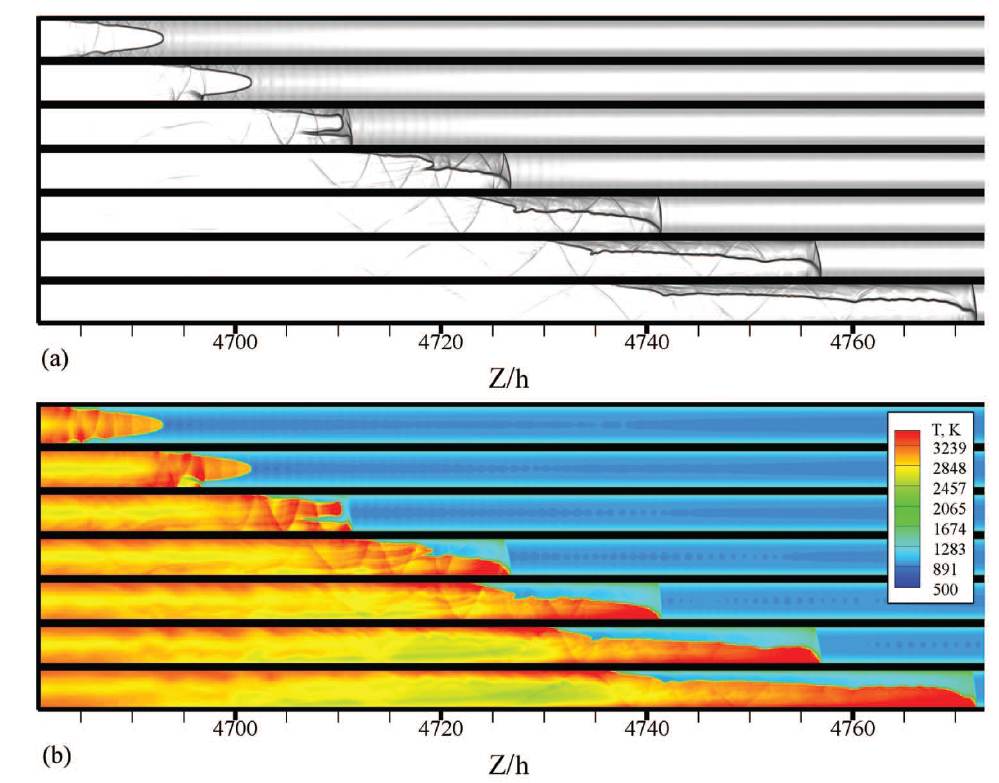

Theoretical and numerical studies of flame acceleration (FA), deflagration-to-detonation transition (DDT), and detonations are important from both practical and fundamental viewpoints. In particular, such studies are relevant in the context of fire safety and explosion mitigation, as well as the development of novel combustion devices, such as pulse-detonation engines (PDE).
The key element of DDT is spontaneous FA, starting with a slow laminar flame and attaining supersonic propagation in the laboratory reference frame by the end of the process. Reducing the risk of unwanted DDT is of primary importance for energy safety, since DDT stands behind many disasters, like accidents in mines and explosions in nuclear power plants. At the same time, DDT is a means to indirectly ignite gaseous detonations. Rapid energy release make the use of detonations advantageous in PDEs and rotating detonation engines (RDEs) of novel aircrafts. At CCE, fundamental modeling and simulation of FA, DDT and detonations are the continuously developing directions of research.
Faculty in this area:Chung K. Law, Wenkai Liang, Damir Valiev


